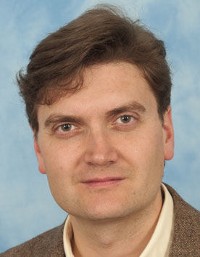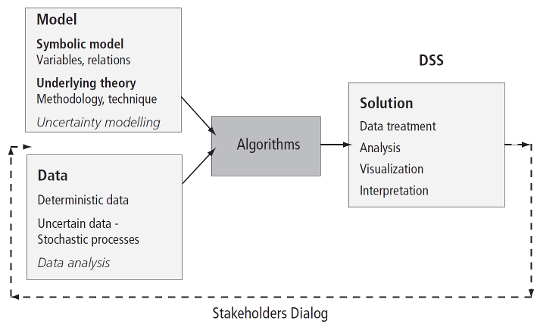Developing a strategic stochastic optimization model,
robust solutions, and a decision-support system for energy-efficient
buildings
Introduction
Energy systems optimization is increasing in importance due to energy sector deregulation and the setting of targets such as the 20/20/20. This has meant the emergence of new types of dynamic stochastic energy models incorporating both strategic and operational decisions (short-term decisions have to be made from long-term perspectives) that involve both technological and market-oriented financial options. Thus, public building managers are challenged by decision-making processes to achieve a robust optimum portfolio. Moreover, those decisions must be made under inherently uncertain conditions.
Methodology
Advanced Stochastic Optimization (STO) methods under quantile-based security constraints for optimal and robust strategic decisions have been used. The model procures robust solutions considering all the plausible scenarios. A framework for Decision Support System (DSS) is proposed (see Figure 1). Such a DSS facilitates stakeholders dialog under a reproducible research approach, with data analysis capabilities, human- and machine-readable model representation, and interaction with optimizers. The framework relies on R [1] through the development of the optimr package.
Results
The model was tested using real data from the EnRiMa project [2], where the framework has been used within a more specific DSS. Results demonstrate the usefulness of using STO to improve the outcomes of deterministic models and hedging against risks.
Conclusions
Decision making is not a static action, but rather an iterative process that requires stakeholder dialog. Moreover, strategic decisions under uncertainty require the application of advanced models that provide robust solutions against all possible scenarios and satisfy security requirements. The framework proposed dealt with those requisites in a flexible and extensible way.
References
[1] R Statistical Software and programming language.
[2] Energy Efficiency and Risk Management in Public Buildings.
Note
Emilio L. Cano, of the Universidad Rey Juan Carlos, Spain, is a Spanish citizen and raised non-IIASA funding to participate in the YSSP. He worked in the Advanced Systems Analysis (ASA) Program during the YSSP.
Please note these Proceedings have received limited or no review from supervisors and IIASA program directors, and the views and results expressed therein do not necessarily represent IIASA, its National Member Organizations, or other organizations supporting the work.
Further information



